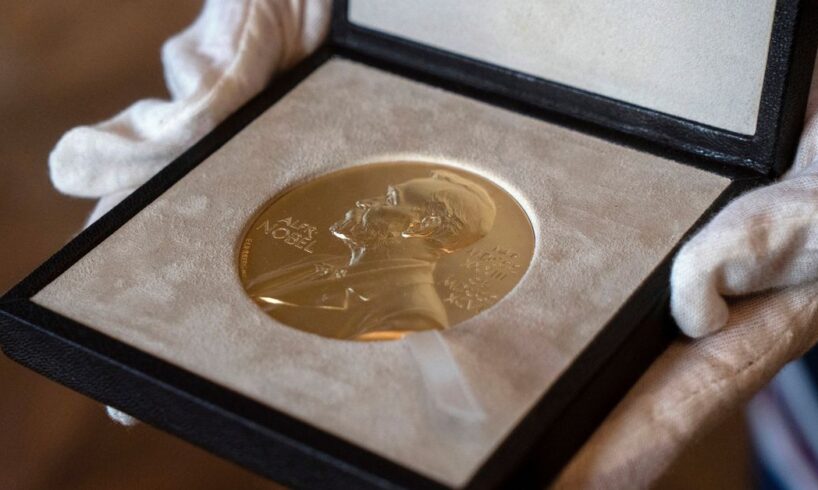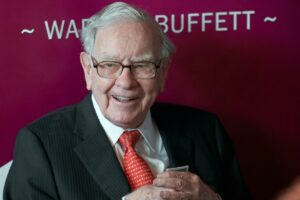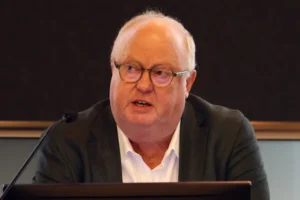
The Nobel Prize winners will be announced next week.
The awards are considered among the world’s most prestigious honours for achievements in medicine, physics, chemistry, literature, economics and peace.
The winners will join the pantheon of Nobel laureates, from Albert Einstein to Mother Teresa.
A Nobel medal is seen at the Swedish ambassador’s residence in London in December 2020. (AP)For the peace prize, US President Donald Trump has been nominated several times by people within the US as well as politicians abroad since 2018.
His name also was put forth in December by a Republican congresswoman for his brokering of the Abraham Accords, which normalised relations between Israel and some Arab states.
Here are some things to know about the Nobel Prizes:
A history of the Nobel Prizes
The Nobel Prizes were created by Alfred Nobel, a 19th-century businessman and chemist from Sweden.
He held more than 300 patents, but his claim to fame before the prizes was having invented dynamite by mixing nitroglycerine with a compound that made the explosive more stable.
Dynamite, which became popular in construction, mining and the weapons industry, made Nobel a very rich man.
US President Donald Trump has been nominated several times by people within the US as well as politicians abroad since 2018. (AP)
Toward the end of his life he decided to use his vast fortune to fund annual prizes “to those who, during the preceding year, have conferred the greatest benefit to humankind.”
The first Nobel Prizes, in medicine, physics, chemistry, literature and peace, were presented in 1901, five years after his death.
In 1968, a sixth prize was created, for economics, by Sweden’s central bank.
Though Nobel purists stress that the economics prize is technically not a Nobel, it’s always presented together with the others.
The Nobel nomination process
None of the nominations are announced by the prizes’ respective committees, and the Nobel statutes prohibit the judges from discussing their deliberations for 50 years.
But those doing the nominating may choose to make their recommendations public.
A person cannot nominate themselves, though they can be nominated multiple times by others, including members of each prize’s panel.
A bust of the Nobel Prize founder, Alfred Nobel, on display at the Concert Hall during a Nobel Prize award ceremony in Stockholm. (AP)
Each prize’s committee operates slightly differently, but they all strive to honor Nobel’s wish that the winners have conferred benefit to humankind.
The peace prize committee is the only one that regularly rewards achievements made in the previous year, and the prize is the only one awarded in Oslo, Norway.
For the science prizes, awarded in Stockholm, winners often have to wait decades to have their work recognised by the Nobel judges, who want to make sure that any breakthrough stands the test of time.
The program for this year’s Nobels
The 2025 Nobel Prize announcements kick off on Monday with the medicine prize being announced by a panel at the Karolinska Institute in Stockholm.
Nobel announcements continue with the physics prize on Tuesday, chemistry on Wednesday and literature on Thursday.
The Nobel Peace Prize will be announced Friday and the Nobel Memorial Prize in Economic Sciences on October 13.
Guests attend the Nobel Prize ceremony in Stockholm in 2024. (AP)
The awards will be handed out on December 10, the anniversary of Nobel’s death.
Each prize carries an award of 11 million Swedish kronor (nearly US$1.2 million), and the winners also receive an 18-carat gold medal and a diploma.
Up to three laureates for each award can share the prize money.





